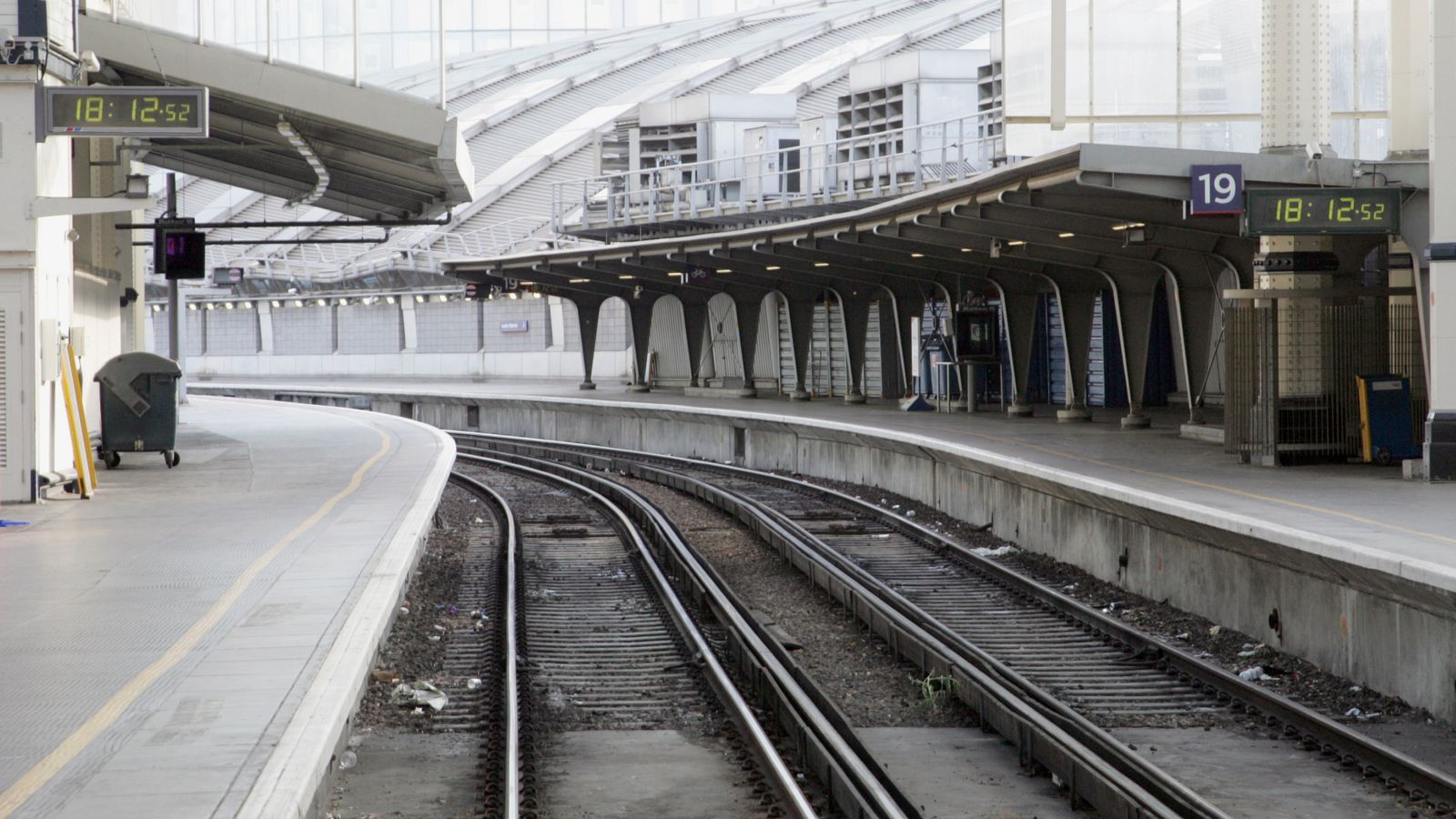A Cabinet minister has told Sky News he fears rail strikes will go ahead this week – and warned that workers must make sacrifices as the UK battles inflation.
Simon Clarke, Chief Secretary to the Treasury, said that while the government was not the legal employer of union members due to walk out, they could not expect “inflation-busting pay increases”.
“I fear it is likely that they [the strikes] will go ahead,” said Mr Clarke. “Clearly we will continue to support the negotiations until such time is there’s no more time to discuss.
“But I think the public do this week need to be aware there will be very substantial disruption and it is therefore sensible to make preparations for that.”
The walk-out of 40,000 workers in the biggest rail strike for three decades threatens to bring travel chaos to commuter and choke roads with increased traffic.
Members of the RMT union are walking out in a dispute over pay, compulsory redundancies and safety concerns – as employers look to make savings on a network that has been propped up by taxpayers during the COVID crisis.
Reports suggest it could be just the start of what has been described as a summer of discontent, with teachers, nurses, doctors and postal workers also considering industrial action.
With inflation at a four-decade high, workers are being told to face up to a real term squeeze in their incomes, with salary increases lower than the 9% increase in the cost of living.
Mr Clarke said the government was hoping that ongoing talks between employers and rail unions would make progress.
He added: “We want to see a resolution that works for everybody. That needs to work for rail workers but critically it needs to work for passengers and the taxpayer as well.
“The taxpayer supported the railway industry very substantially during the pandemic. We’re now coming out of that, we need the railway to be a sustainable force in our country. It isn’t. Those changes need to be secured as part of this wider negotiation.”
The government indirectly controls the thousands of miles of track, via Network Rail, on which privately-owned train companies operate.
Mr Clarke said it would not interfere in the negotiations between employers and employees, saying: “We don’t own the railways ourselves.”
